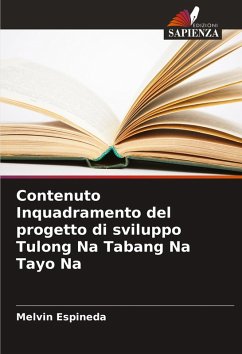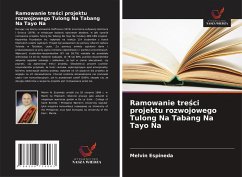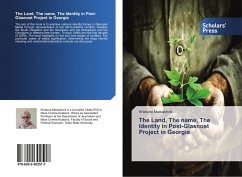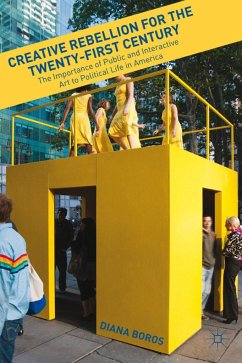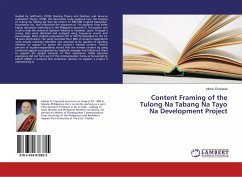
Content Framing of the Tulong Na Tabang Na Tayo Na Development Project
Versandkostenfrei!
Versandfertig in 6-10 Tagen
27,99 €
inkl. MwSt.

PAYBACK Punkte
14 °P sammeln!
Guided by Goffman's (1974) Framing Theory and Gerbner and Gross'es Cultivation Theory (1976), this descriptive study explored how the framing of Tulong Na Tabang Na Tayo Na project of ABS-CBN Lingkod Kapamilya Foundation Inc. had influenced the responses of 114 students from three higher education institutions in the Philippines towards it. The project was a call to help the victims of Typhoon Yolanda in Tacloban, Leyte. Through a survey, data were obtained and analyzed using frequency counts and percentages. Most student-respondents (67 or 58.7%) belonged to the 14-18 years old bracket. The s...
Guided by Goffman's (1974) Framing Theory and Gerbner and Gross'es Cultivation Theory (1976), this descriptive study explored how the framing of Tulong Na Tabang Na Tayo Na project of ABS-CBN Lingkod Kapamilya Foundation Inc. had influenced the responses of 114 students from three higher education institutions in the Philippines towards it. The project was a call to help the victims of Typhoon Yolanda in Tacloban, Leyte. Through a survey, data were obtained and analyzed using frequency counts and percentages. Most student-respondents (67 or 58.7%) belonged to the 14-18 years old bracket. The study recorded 78 or 68% of student-respondents were actively watching television and assumed to be capable of deciding whether to support or ignore the project's framed content. Twenty percent of student-respondents shared that the framed content by using emotional appeal accompanied by emphatic message had influenced them to support the project because of their experience. While personal experience did not form part of the communication frame as forwarded by Lakoff (2004), it surfaced that audiences' decision to support a project is motivated by it.






